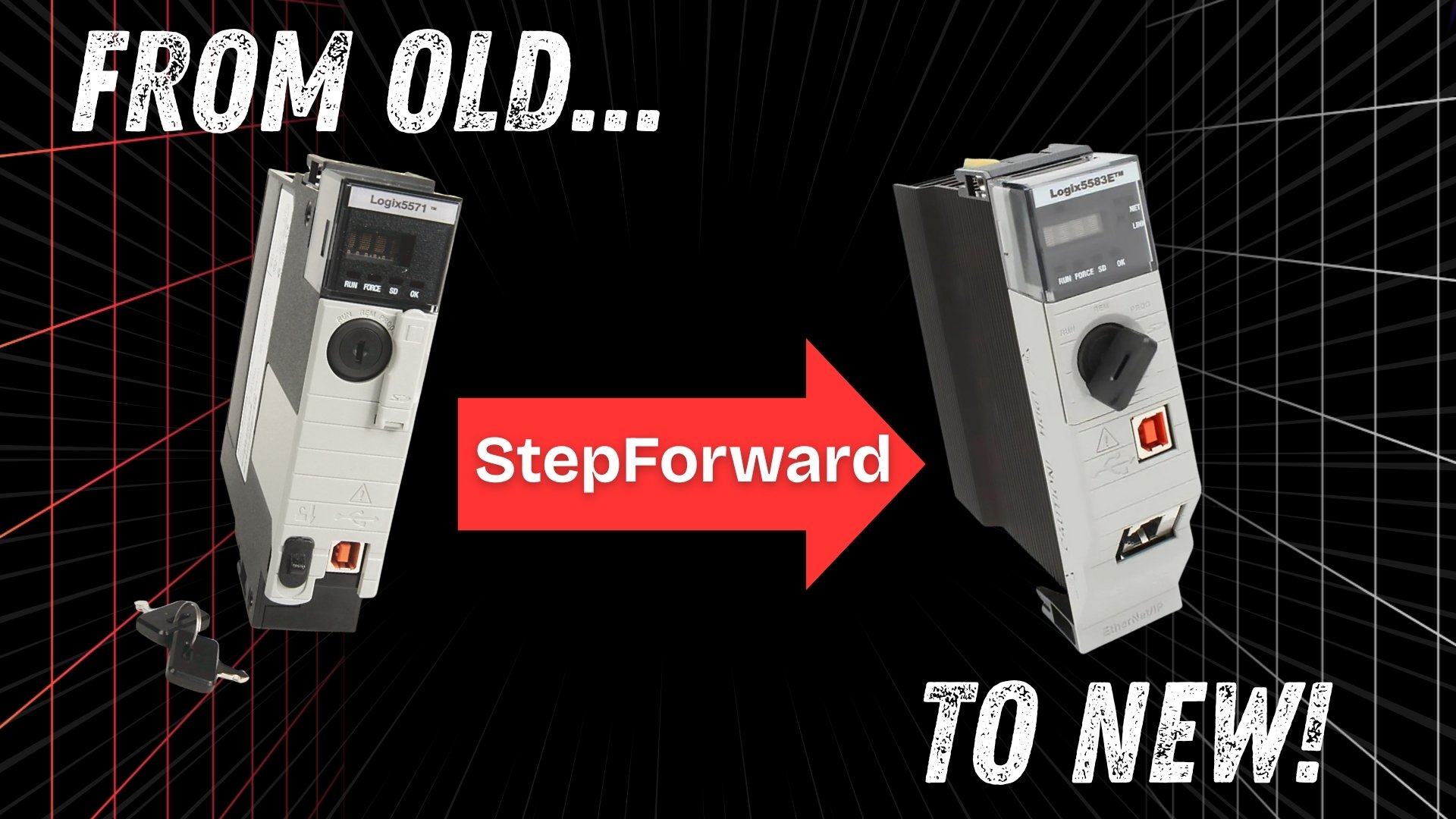Rockwell’s StepForward Program: A Smarter Way to Modernize
September 15th, 2025
3 min read

Think about the last time you upgraded your phone. Chances are, you didn’t wait until it completely stopped working. You probably traded in the old one while it still had some life left in it, shaved a few hundred bucks off the new model, and walked away with better performance, more features, and longer-term support.
That same logic applies to your plant floor.
Too often, manufacturers wait until hardware fails or software is no longer supported before taking action. The problem? At that point, it’s hardly an upgrade; it’s more like an emergency. And emergency decisions rarely leave room for strategy, research, or budget planning.
Rockwell Automation’s StepForward Program is built to change that mindset. It gives you a way to recover value from your current systems while stepping into more modern, reliable, and scalable technology. Whether you're dealing with outdated software licenses, legacy controllers, or even competitor platforms, Rockwell offers incentives that can make the transition significantly more affordable (and a whole lot smarter).
The Modernization Dilemma
We get it. If your current systems are still running, upgrading can feel unnecessary, especially when budgets are tight and there's pressure to keep production moving without interruptions. That old "if it ain’t broke, don’t fix it" mentality is common, and in some ways, understandable.
But here’s the other side of it: just because a system is running doesn’t mean it’s serving you well. Older hardware and software often limit what you can do. They’re harder to support, tougher to integrate, and more expensive to maintain in the long run. And when something finally does break, you're facing emergency replacement costs and unplanned downtime, usually with a higher price tag than if you’d planned ahead.
Still, one of the biggest reasons manufacturers put off modernization isn’t uncertainty about why, it’s concern about how much. Cost is often the dealbreaker.
That’s where StepForward comes in.
This program doesn’t just nudge you to modernize. It makes the decision easier to swallow by giving you credit for what you already own. Whether it’s an older license or an aging controller, Rockwell’s Step Forward Program helps you recoup part of that investment and apply it directly toward the new system so you’re not starting from zero.
It bridges the gap between “we know we need to upgrade” and “we can actually afford to.” And for many manufacturers, that’s the difference between continuing to push modernization off and finally moving forward.
How StepForward Works
The program is simple: when you upgrade qualifying Rockwell software or hardware (or even competitor hardware), you receive a credit toward your purchase based on what you’re retiring.
Let’s say you’ve been using a base-level Studio 5000 license that only supports CompactLogix. Now you’ve got a new project coming up that requires ControlLogix. Instead of purchasing a brand-new license outright, Step Forward allows you to trade in your existing license and pay only the difference in value. That could save you a meaningful amount on top of getting you where you need to go.
It works similarly for hardware. Maybe you’re running an L71 controller but want to move up to an L83E for added performance. Even though the L71 is still active, Rockwell offers a percentage credit if you trade it in as part of the upgrade. And if you’re sitting on truly legacy platforms like PLC-5 or SLC, the credits often get more generous. Rockwell wants customers off unsupported systems and onto current technology.
One thing many people don’t realize is that even competitor products–like those from Siemens or ABB–can qualify for credits. If you're migrating to Rockwell's platform, the program rewards you for making the switch. That opens the door to savings even if you're not already a Rockwell customer.
Why You Should Talk to Us First
Here’s where this gets especially important: you shouldn’t try to navigate this process alone.
The last thing you want is to buy a new license or controller at full price only to find out after the fact that it would’ve qualified for a StepForward credit. That happens more often than you'd think.
Before you finalize your next purchase or kick off a modernization initiative, talk to us. We can help identify what equipment or licenses you already have, check what’s eligible for StepForward, and map out an upgrade plan that maximizes your budget. Even if you’re just exploring options, it’s worth the conversation. We’re not looking to sell you an antidote you don’t need; just provide guidance that could save you real money.
Why It Matters More Than Ever
Industrial automation technology is evolving quickly. The push toward smarter systems, integrated platforms, and digital transformation is a necessity if you want to stay competitive, secure, and scalable. But that doesn’t mean you need to rip and replace your entire plant.
Programs like StepForward are designed for that in-between phase. For companies that have made investments in older tech but aren’t ready to overhaul everything. For facilities where the systems still “work,” but the risks of downtime, cyber threats, or obsolescence are creeping in. For teams who want to modernize on their own terms without blowing the budget.
The smartest upgrades are the ones you plan for. And StepForward helps make those plans more affordable, more strategic, and more future-proof.
Let’s Talk Before You Make a Move
You wouldn’t trade in your car without knowing its value. The same goes for your automation systems.
Before you make a purchase, retire an old piece of equipment, or sign off on a major upgrade, let’s talk. We’ll help you figure out what qualifies, how much you could save, and what the smartest path forward looks like for your facility.
Because when it comes to modernization, a little planning can go a long way, and a program like StepForward makes it go even further. Reach out today to get the conversation started.
Topics:
